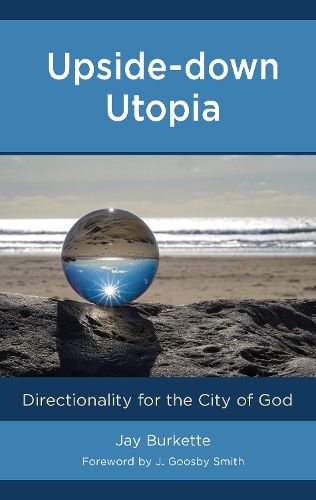Readings Newsletter
Become a Readings Member to make your shopping experience even easier.
Sign in or sign up for free!
You’re not far away from qualifying for FREE standard shipping within Australia
You’ve qualified for FREE standard shipping within Australia
The cart is loading…






Recent scholarship on process-driven utopia exhibits two startling omissions. The first is a lack of practical methodology proposed. The second elision is more serious. Without a way to discriminate between utopian hope and ideological agendas, the target for utopia's pursuit becomes equally suspect. In this groundbreaking, interdisciplinary investigation of processual theory and methodology, Jay Burkette argues that while situating utopia within prefigurative performance remains the best option, certain facets must be refined to ensure it remains the 'good place.' These include a necessary moral grounding for its directionality as well as recognizing that different performative vectors are required from different actors. Blending the thought of Ernst Bloch, St. Augustine, Ruth Levitas, Walter Benjamin, Cristina Sharpe, Kierkegaard, and others, Upside-Down Utopia: Directionality for the City of God demonstrates that determining an appropriate heading for utopian affect entails identifying its genesis within past loss, an initial catastrophe defining humankind's nature and struggle, highlighting the need for divine aid to orient the quest for the city of God.
$9.00 standard shipping within Australia
FREE standard shipping within Australia for orders over $100.00
Express & International shipping calculated at checkout
Recent scholarship on process-driven utopia exhibits two startling omissions. The first is a lack of practical methodology proposed. The second elision is more serious. Without a way to discriminate between utopian hope and ideological agendas, the target for utopia's pursuit becomes equally suspect. In this groundbreaking, interdisciplinary investigation of processual theory and methodology, Jay Burkette argues that while situating utopia within prefigurative performance remains the best option, certain facets must be refined to ensure it remains the 'good place.' These include a necessary moral grounding for its directionality as well as recognizing that different performative vectors are required from different actors. Blending the thought of Ernst Bloch, St. Augustine, Ruth Levitas, Walter Benjamin, Cristina Sharpe, Kierkegaard, and others, Upside-Down Utopia: Directionality for the City of God demonstrates that determining an appropriate heading for utopian affect entails identifying its genesis within past loss, an initial catastrophe defining humankind's nature and struggle, highlighting the need for divine aid to orient the quest for the city of God.